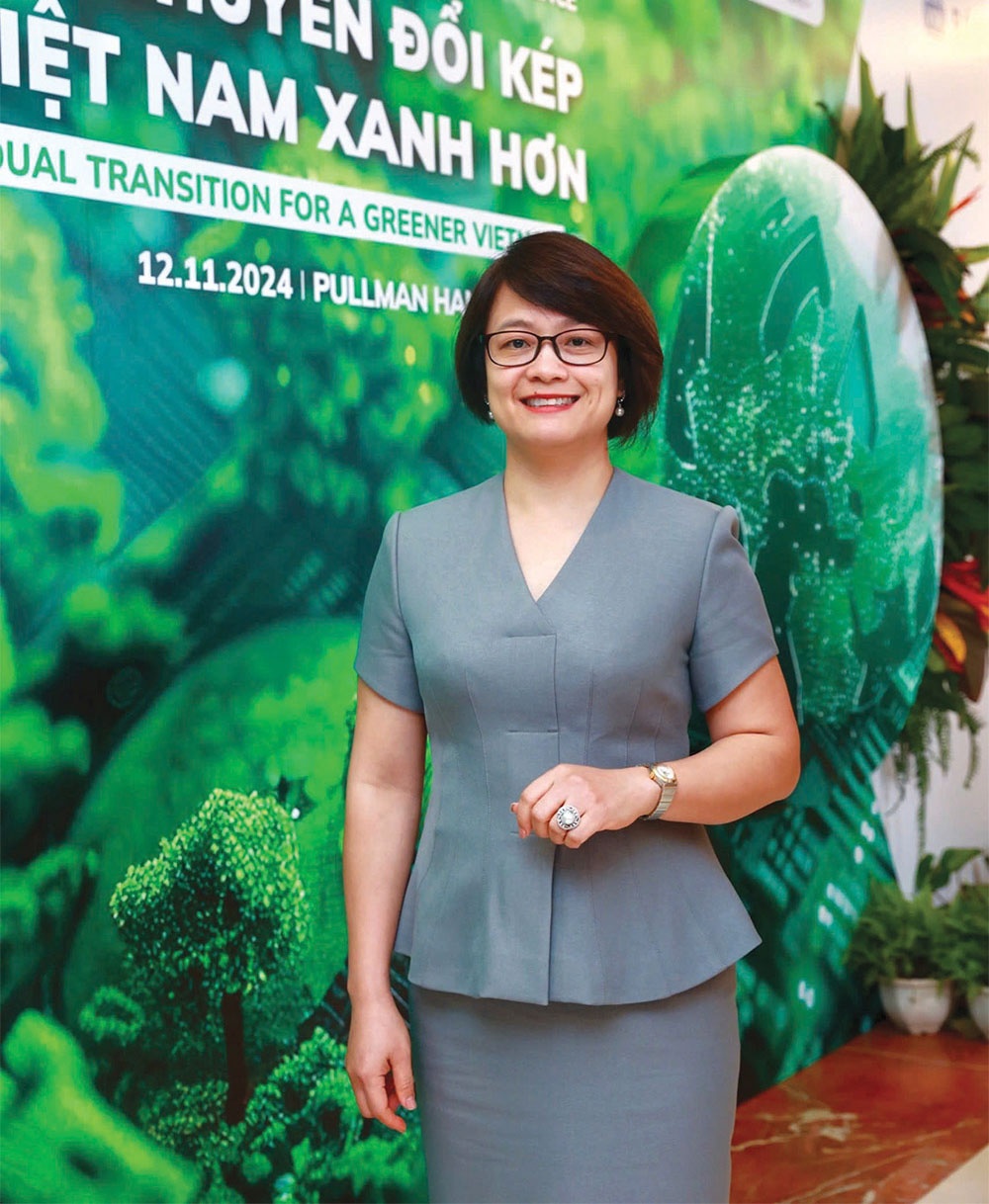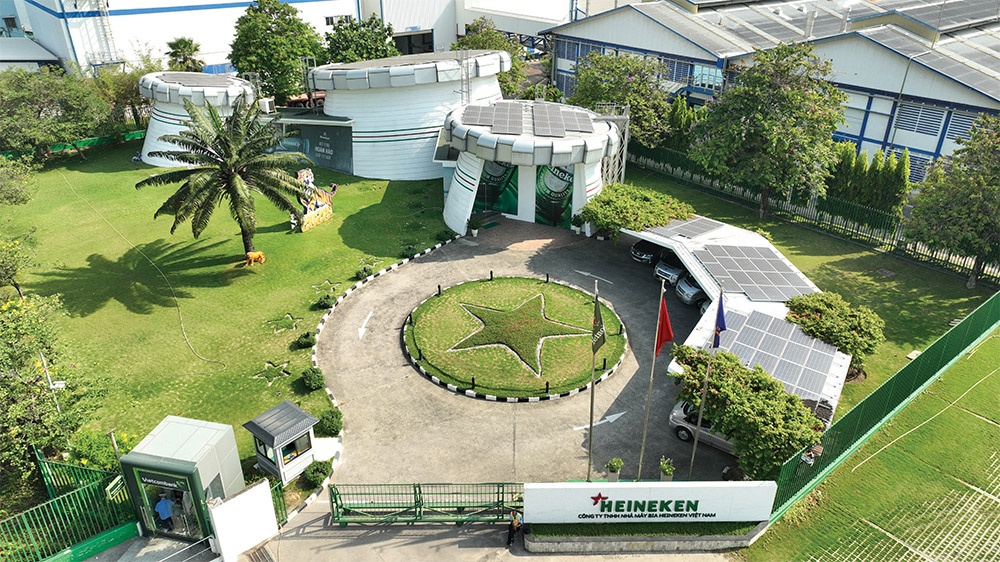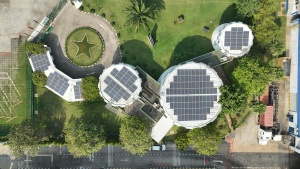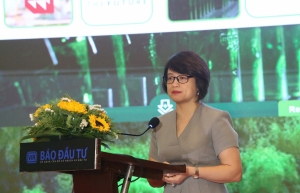HEINEKEN Vietnam’s clear path towards net-zero
How important is sustainable development for companies like yours, and what has been carried out in this area thus far?
Sustainability has always been central to how we brew and sell our products. Through our sustainability strategy “Brew A Better Vietnam”, we have been able to make remarkable contributions to the community, society, and environment of Vietnam.
 |
| Tran Ngoc Anh, the company’s corporate affairs director |
Under the environmental pillar, in line with the government’s net-zero roadmap, HEINEKEN Vietnam has an ambition of reaching zero emissions in production by 2030, and across the entire value chain by 2040. On this roadmap, we focus highly on the transition to renewable energy and maximising circularity. Currently, we use 99 per cent of renewable energy in production, and have been sending zero waste to landfill at all breweries since 2021.
All by-products and wastes in the production process are recycled, reused, or upcycled into other products to be put into other value chains.
For example, sludge after going through the wastewater treatment system will become fertiliser and clean soil, and biogas generated in our process is recovered and used as thermal energy for the beer brewing process. As a result, in 2023 we reduced CO2 emissions in production by 93 per cent compared to 2018.
Across the entire value chain, what is the company’s current emission reduction strategy?
In the value chain, more than 90 per cent of our emissions come from activities beyond our direct control. Therefore, we have constantly strengthened our cooperation with suppliers to support them in building a roadmap for emission reduction, while maximising the circular economy throughout the value chain to use raw materials in the most efficient way.
In particular, for packaging, we reuse up to 97 per cent of glass bottles and 99 per cent of plastic crates. For aluminum cans and cartons, we are working with suppliers and recyclers for projects from can-to-can.
Going forward, we will continue to innovate in packaging, increasing the use of recycled materials as well as recovery and reuse.
In terms of logistics, we will apply various initiatives such as converting transportation to electric trucks to reduce emissions. However, these initiatives are highly dependent on market availability and transport infrastructure.
In addition, at our partnered outlets, we are using low-emission refrigerators which are quality-controlled by HEINEKEN globally. We are always looking into a recycling policy for used refrigerators.
How does HEINEKEN Vietnam ensure the objectivity and effectiveness of its activities to make timely adjustments?
To evaluate the effectiveness of activities and make appropriate adjustments when necessary, the measurement, reporting, and verification steps play a very important role. We cannot set emission reduction targets without measuring current emissions.
On our journey to transitioning to renewable energy and applying the circular economic model, we apply a 4R strategy with four pillars. These are reducing energy consumption with advanced equipment and process optimisation; replacing fossil energy with renewable energy; removing and eliminating residual emissions with carbon offset projects; and reporting and evaluating impacts throughout the process.
All data is rigorously measured, audited, and reported, helping us identify the highest-emitting areas in our value chain, and focus on reducing carbon emissions in manufacturing and across our entire value chain as quickly as possible.
We also developed a carbon footprint tool to collect, measure, and report the total emissions produced across our value chain based on the greenhouse gas (GHG) protocol. We disclose our emissions and reduction progress in our annual report, which is independently audited by a third party.
Going forward, our GHG reporting will support compliance of new regulations such as the directive on corporate sustainability reporting and regulations in Vietnam related to GHG inventory reporting.
 |
| From logistics and products to systems at its facilities, HEINEKEN Vietnam operates with sustainability in mind |
What is the most important factor for the company when it comes to completing its net-zero ambitions?
People are the most important factor for HEINEKEN Vietnam to implement a sustainable development strategy. We believe that people create processes, and also enable creativity and innovation. Therefore, we constantly promote the participation of leaders and employees in departments to raise awareness and join hands to act towards our zero emission ambition.
Moreover, we regularly update internal policies and guidelines to ensure compliance with the latest regulations and advanced practices, as well as policies on rewards for carbon reduction related targets at leadership and departmental levels.
 | HEINEKEN Vietnam continues sustainability ambitions amid challenging times HEINEKEN Vietnam issued an update on its sustainability progress on September 10, highlighting its continued efforts and achievements towards "Brewing a Better Vietnam” – despite a challenging year. |
 | HEINEKEN Vietnam's journey towards net zero HEINEKEN Vietnam, a staple in Vietnam's beverage industry for over 30 years, is reinforcing its commitment to Vietnam’s sustainable development goals. |
What the stars mean:
★ Poor ★ ★ Promising ★★★ Good ★★★★ Very good ★★★★★ Exceptional
Related Contents
Latest News
More News
- Masan Consumer names new deputy CEO to drive foods and beverages growth (February 23, 2026 | 20:52)
- Myriad risks ahead, but ones Vietnam can confront (February 20, 2026 | 15:02)
- Vietnam making the leap into AI and semiconductors (February 20, 2026 | 09:37)
- Funding must be activated for semiconductor success (February 20, 2026 | 09:20)
- Resilience as new benchmark for smarter infrastructure (February 19, 2026 | 20:35)
- A golden time to shine within ASEAN (February 19, 2026 | 20:22)
- Vietnam’s pivotal year for advancing sustainability (February 19, 2026 | 08:44)
- Strengthening the core role of industry and trade (February 19, 2026 | 08:35)
- Future orientations for healthcare improvements (February 19, 2026 | 08:29)
- Infrastructure orientations suitable for a new chapter (February 19, 2026 | 08:15)

 Tag:
Tag:



















 Mobile Version
Mobile Version